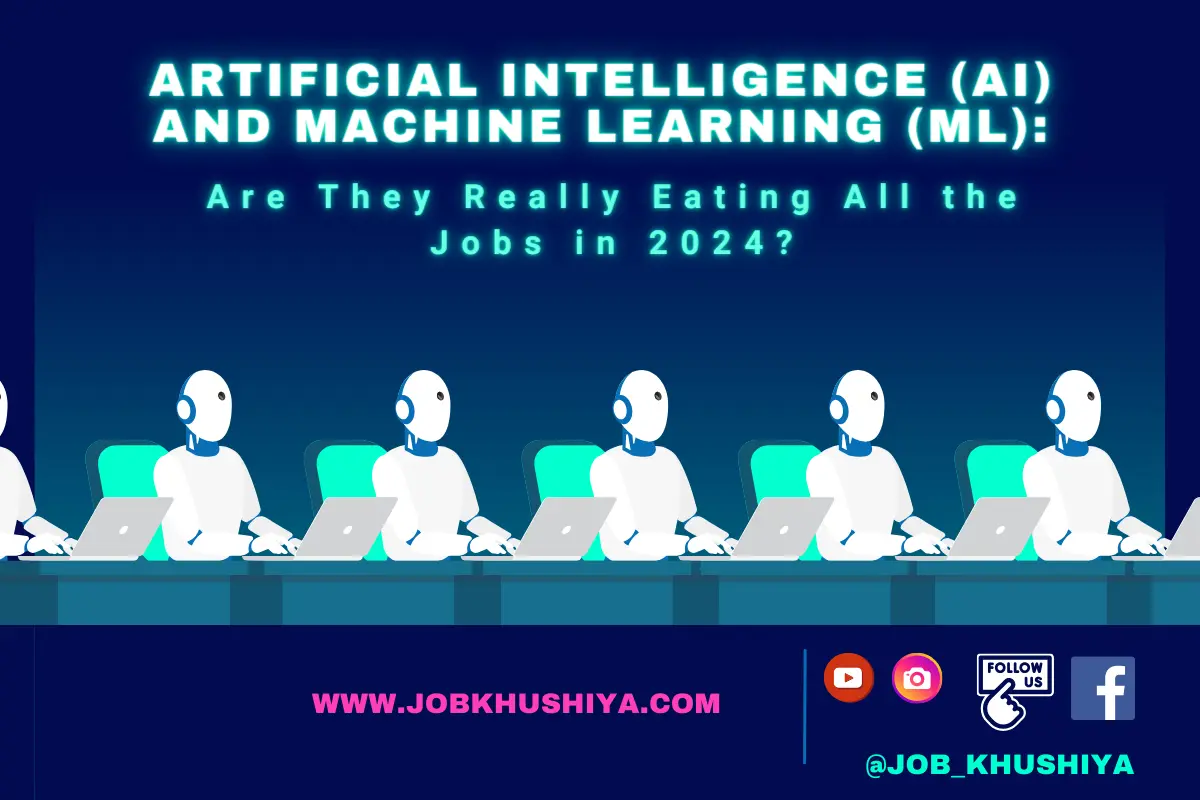In the age of rapid technological advancement, the fear of automation replacing human jobs has been a recurring theme. With the rise of Artificial Intelligence (AI) and Machine Learning (ML), this concern has become even more prominent. But are AI and ML really eating all the jobs in 2024, or is there more to the story?
Let’s start by acknowledging the undeniable impact AI and ML have had on various industries. These technologies have revolutionized processes, making them faster, more efficient, and often cheaper. Tasks that once required significant human involvement can now be automated, leading to increased productivity and reduced costs for businesses.
However, the narrative of AI and ML devouring all the jobs oversimplifies a complex reality. While it’s true that certain repetitive and mundane tasks are being automated, this doesn’t necessarily equate to widespread job loss. Instead, it often leads to a transformation of roles and the creation of new opportunities.
Here are a few reasons why AI and ML are not necessarily eating all the jobs:
1) Job Transformation:
Rather than eliminating entire job categories, AI and ML are transforming them. For example, in customer service, chatbots powered by AI handle routine inquiries, freeing up human agents to focus on more complex issues that require empathy and creativity.
2) Creation of New Jobs:
The advancement of AI and ML has led to the emergence of entirely new job roles. Data scientists, AI ethicists, machine learning engineers, and AI trainers are just a few examples of positions that have become increasingly in demand as organizations harness the power of these technologies.
3) Augmentation, Not Replacement:
AI and ML often complement human capabilities rather than replacing them entirely. For instance, in healthcare, AI-powered diagnostic tools assist doctors in making more accurate diagnoses, but the final decision and treatment plan still rely on human expertise.
4) Skill Enhancement:
The adoption of AI and ML necessitates upskilling and reskilling of the workforce. Workers who acquire skills in data analysis, programming, and AI development are better positioned to thrive in the evolving job market.
5) New Opportunities for Innovation:
AI and ML open up avenues for innovation across various sectors. Companies that embrace these technologies can gain a competitive edge by offering innovative products and services that meet evolving consumer needs.
While it’s essential to acknowledge the potential disruptions caused by AI and ML, it’s equally important to recognize the opportunities they present. Instead of fearing job loss, society should focus on preparing the workforce for the jobs of the future.
Governments, educational institutions, and businesses play a crucial role in this process by investing in education and training programs that equip individuals with the skills needed to thrive in the digital age. Additionally, policies that promote responsible AI development and ensure equitable access to opportunities are essential in mitigating the negative impacts of automation.
In conclusion, AI and ML are undoubtedly reshaping the job market, but they are not devouring all the jobs. By embracing technological advancements, fostering innovation, and investing in human capital, we can navigate the evolving landscape of work and create a future where AI and humans coexist harmoniously, driving progress and prosperity for all.
Read More Tips/Advice :- Top 10 Emerging Careers in Tech: Where the Jobs Are in 2024 , Upskilling in 2024: The Essential Skills You Need to Thrive in the Job Market
